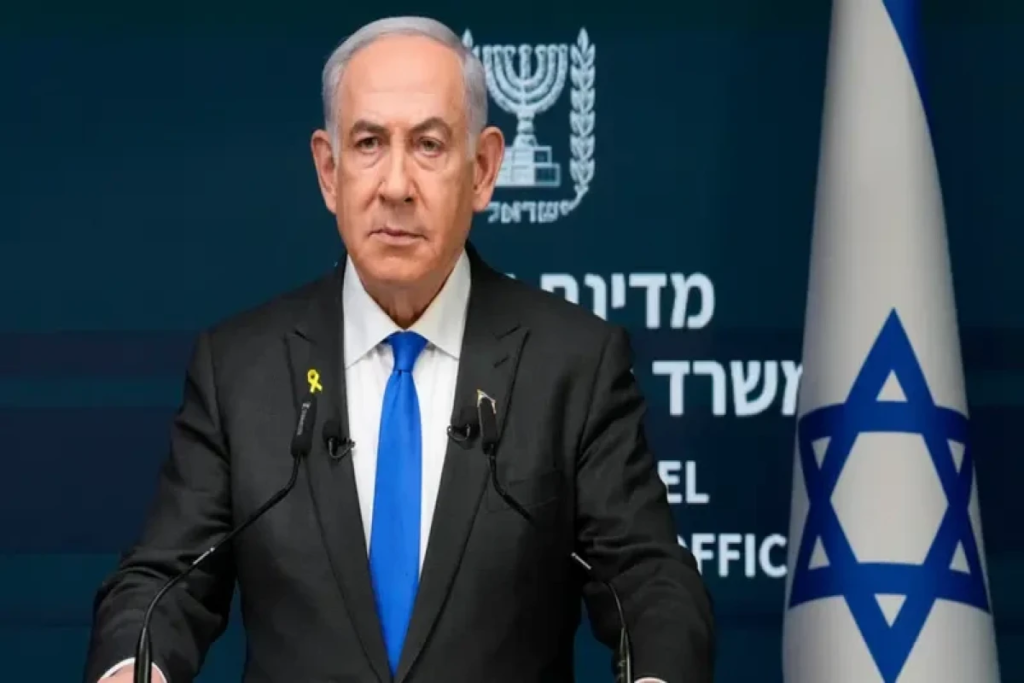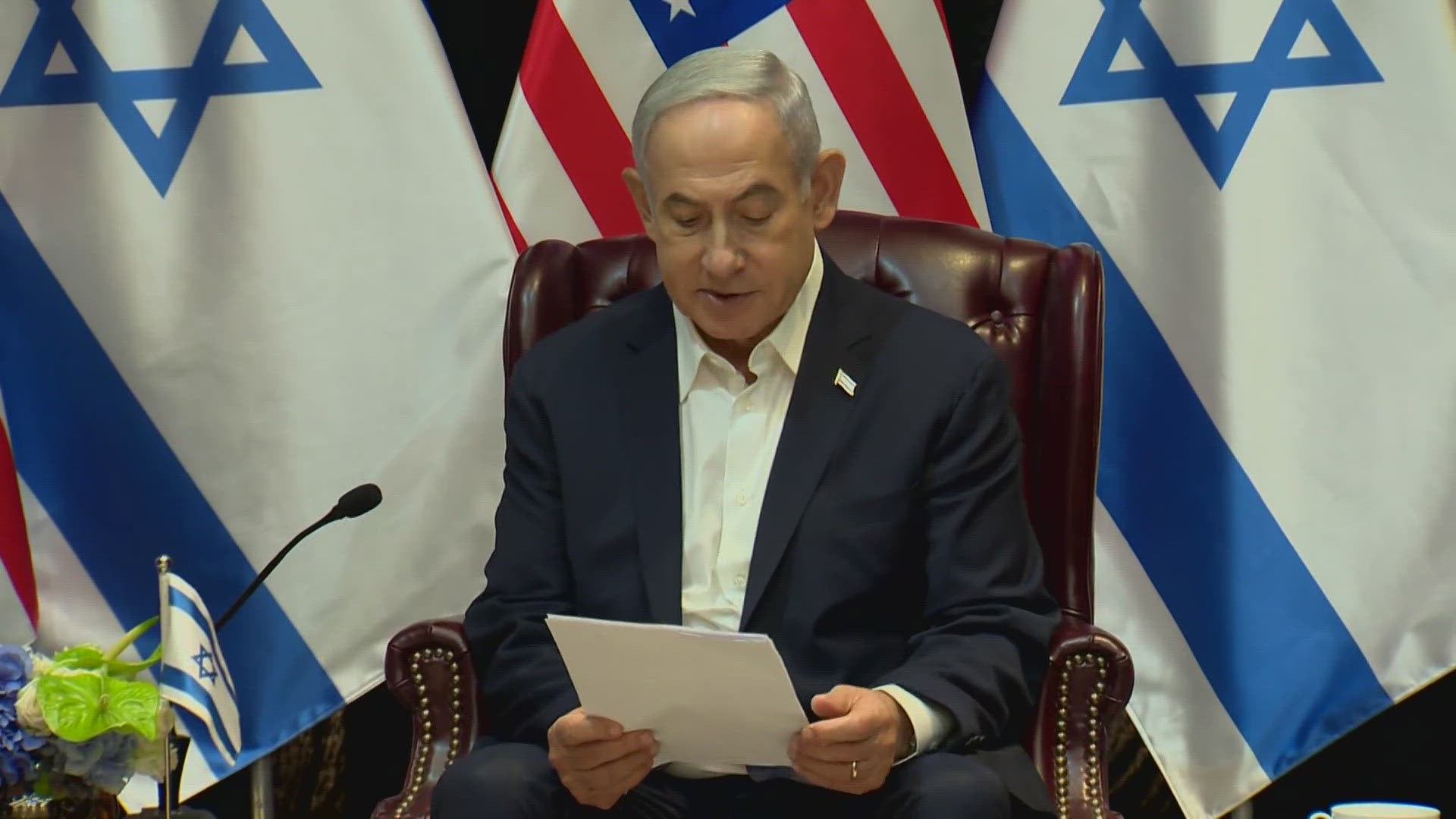Prime Minister Benjamin Netanyahu recently announced that Israeli airstrike on Iran was both precise and effective, achieving its intended objectives. Speaking at a commemorative event, Netanyahu explained that the operation targeted key Iranian military sites, specifically those related to missile and drone production.
These strikes, he asserted, were a direct response to Iran’s missile assault on Israel, which involved the launch of hundreds of ballistic missiles, causing significant concern within the region.
A Calculated Response to Escalating Tensions
Israel’s air assault on Iran follows weeks of mounting tensions after Iran’s October 1 attack, during which 200 ballistic missiles were launched at Israeli targets. This assault forced large portions of the population into bomb shelters and resulted in casualties, including the death of a Palestinian man in the West Bank.
Although the Israeli Defense Forces (IDF) reported minimal operational impact from the Iranian strike, the incident highlighted Iran’s growing ballistic capabilities and the continued volatility of the region.
Read: Israel Accuses 6 Al Jazeera Journalists of Being Hamas Terrorists
In response, Netanyahu affirmed that Israel’s military strikes were designed to significantly reduce Iran’s missile production capabilities. The strikes specifically targeted drone and missile manufacturing sites, as well as air defense batteries that provide protection for Iran’s strategic assets.
The destruction of these facilities, according to Israeli and American intelligence, will reportedly delay Iran’s long-range missile production and leave critical energy sites vulnerable to potential future attacks.
Targeting the “Head of the Octopus”
For months, Netanyahu and his administration have described their approach as aimed at severing the “arms of the Iranian octopus,” a metaphor for Iranian-backed forces in the region such as Hezbollah and Hamas.
On Saturday, however, Netanyahu stated that Israel had chosen to strike directly at the “head of the octopus,” meaning the core of the Iranian regime and its military infrastructure.
Read : Satellite Photos Show Iran Expanding Missile Production: Assessed by American Researchers
Defense Minister Yoav Gallant echoed this sentiment, calling the attack a “precise, lethal, and surprising” mission that was designed to send a strong message: Israel’s long arm can reach anyone who threatens its security.
The Israeli Air Force’s operation reportedly included waves of strikes across several strategic locations within Iran, marking one of the largest-scale operations carried out by Israel against Iran to date.
The IDF’s acknowledgment of the attack and its extensive scale indicates Israel’s intent to assert its position firmly and with transparency in the face of Iranian threats.
Iran’s Measured but Defiant Response
Following the airstrike, Iranian officials confirmed that several military sites around Tehran and other provinces had been hit, resulting in the deaths of four soldiers. Supreme Leader Ayatollah Ali Khamenei responded cautiously, calling Israel’s actions a “mistake” and advising against downplaying the impact of the strikes.
Khamenei noted that while it is crucial not to exaggerate the damage, it would also be unwise to dismiss Israel’s move entirely. This stance reflects a balance between showing resilience and acknowledging the gravity of the attack.
Iranian officials, including Parliament Speaker Mohammad Bagher Ghalibaf, also condemned Israel’s actions, promising a “decisive and appropriate” response.
Ghalibaf criticized the strikes as a “sign of desperation” on Israel’s part and warned that Tehran’s retaliation would be inevitable. Additionally, he cautioned the United States against further involvement, emphasizing Iran’s right to self-defense under Article 51 of the United Nations Charter.
Despite the intense rhetoric, Khamenei assured the Iranian public that Tehran’s leadership would take measured steps to determine the most beneficial response, indicating that Iran’s next moves would be strategic rather than impulsive.
Israeli officials, meanwhile, hinted at their readiness for further action if necessary, emphasizing that the operation had granted them wider “freedom of aerial action” within Iranian territory.
A Strategic Shift in Regional Dynamics
This unprecedented escalation between Israel and Iran underscores a pivotal shift in the regional security landscape. The Biden administration, while reportedly briefed on Israel’s plans in advance, urged caution regarding attacks on nuclear and oil facilities.
The United States’ delicate position reflects its commitment to support Israel’s right to defense while simultaneously trying to prevent further destabilization in the region.

Iran’s missile launch on October 1 was itself a reaction to prior Israeli actions in Lebanon, which led to the deaths of senior Hezbollah and Hamas leaders. This chain of attacks illustrates a cycle of retribution and preemptive action that has further strained Israeli-Iranian relations.
Analysts suggest that Israel’s willingness to acknowledge responsibility for the attack signals a more open and assertive approach to countering Iranian influence, a stance likely shaped by the heightened threats in the region.
Netanyahu’s comments at the memorial ceremony for those lost in past conflicts emphasized that Israel’s fight is not against the Iranian people but against a regime that poses a threat to regional stability.
This distinction may serve as a message to both domestic and international audiences, indicating that Israel’s actions are intended to target state actors rather than civilians.
Regional and Global Implications
Israel’s recent airstrike has raised concerns about the potential for further escalation. As Iran weighs its response, the international community, particularly allies of both nations, is monitoring the situation closely.
For Israel, the recent strikes were not only a response to immediate threats but also a demonstration of its commitment to national defense and deterrence. By targeting Iran’s military production facilities, Israel has signaled a firm stance against any actions it perceives as endangering its sovereignty.
The outcome of this confrontation will likely shape future security policies for both nations. For Israel, maintaining security against Iranian influence in the region remains a high priority, while for Iran, ensuring that its military and strategic resources remain intact is equally critical.
As both nations navigate the fallout of these recent events, their actions will continue to impact regional stability and the broader geopolitical landscape.

